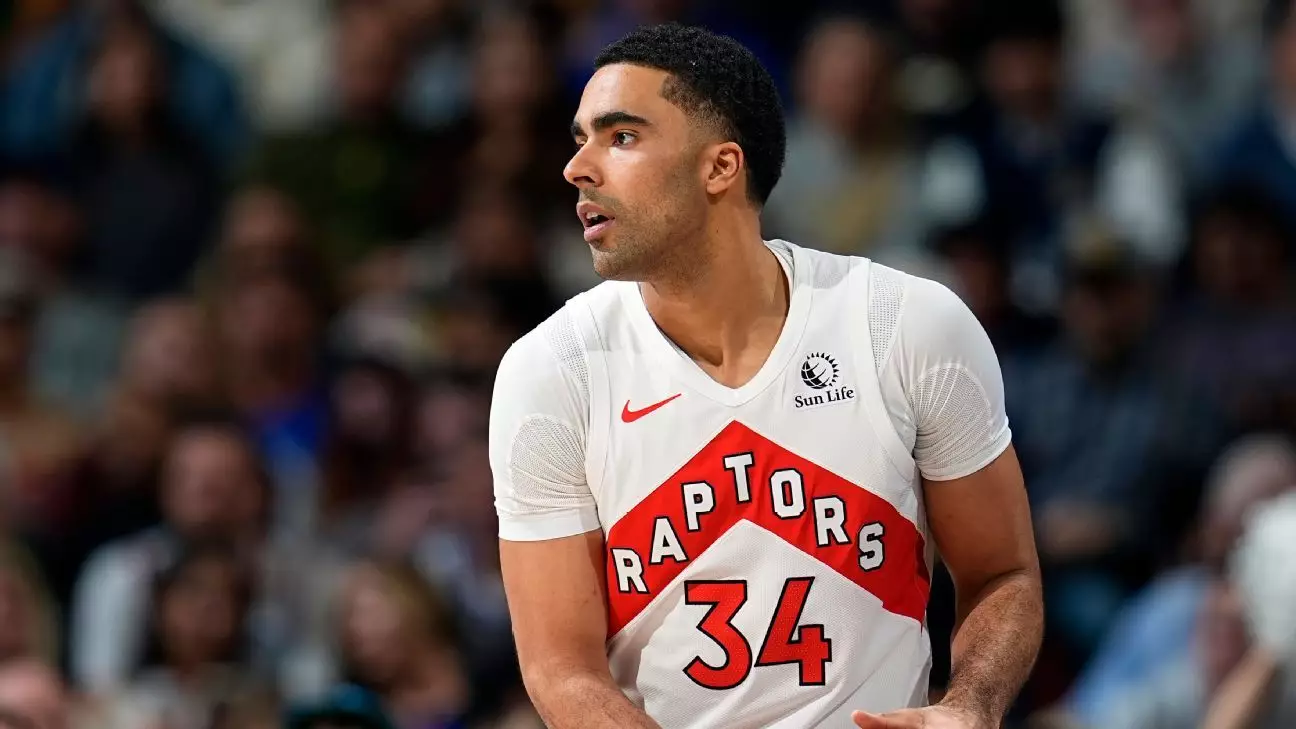The ongoing debate surrounding sports betting highlights a critical challenge confronting professional leagues today: safeguarding the integrity of the game while balancing the interests of fans and bettors. As betting markets expand, especially in the age of digital technology, leagues such as the NBA are increasingly faced with the grim reality that some gamblers exploit vulnerabilities, risking match-fixing, athlete coercion, and extensive harassment. This is not merely about the integrity of competition but also about the human cost to players caught in the crossfire of obsession and deception.
The recent involvement of NBA players in federal gambling investigations amplifies the urgency for reforms. While not all players are implicated, the fact that key figures such as Jontay Porter, Terry Rozier, and Malik Beasley have come under scrutiny reveals troubling cracks in the system. Porter’s case, in particular, demonstrates how deeply intertwined gambling activities can undermine a player’s focus, reputation, and well-being. His manipulation of performances to benefit bettors illustrates how easily trust can be compromised when greed and desperation intersect.
Balancing Regulation and Fan Engagement
The NBA and the NBA Players Association’s stance on imposing tighter controls over prop bets reflects a recognition that current regulations may be insufficient. The league’s commitment to offer legal, regulated betting options demonstrates an understanding that fans have a genuine interest in engaging with their favorite sport through responsible betting, provided that the system is fair and transparent. However, as the league acknowledges, some types of bets—particularly those focusing on individual player performance—pose a significantly higher risk of manipulation.
The push for restrictions on prop bets, especially micro-bets, emerges from the concern that these high-frequency wagers can be exploited by individuals seeking to influence outcomes or extract personal advantage. While the concept of micro-bets seems appealing due to the thrill and immediacy they provide, the potential for abuse is high. These bets, based on very specific game events, can create opportunities for unethical activity that may jeopardize the sport’s reputation.
It’s notable that leagues and regulators are grappling with this dilemma: How does one maintain fan engagement without opening doors for corruption? The solution likely involves a nuanced approach—one that emphasizes transparency, limits on certain bet types, and stringent monitoring—rather than outright prohibitions that may alienate loyal fans. The challenge remains to strike a balance where legal betting complements the game rather than imperils it.
The Problem of Athlete Harassment and the Need for Tighter Controls
Beyond the specter of performance manipulation lies a less discussed but equally damaging issue: athlete harassment. With the gambling industry’s growth, some players report feeling increasingly harassed by disgruntled bettors, both online and offline. This harassment can take many forms—from threatening messages to confrontations—that threaten player safety and mental health.
The NBA’s nuanced position—that some regulations could mitigate athlete abuse—is both pragmatic and necessary. While case specifics like Porter’s point to potential vulnerabilities, the broader concern should be the protection of players as individuals, not just competitors. Increasing restrictions on prop bets and improving enforcement mechanisms might serve as a safeguard against the darker aspects of sports wagering, ensuring that players can carry out their careers without fear of intimidation or coercion.
In states like Ohio and New Jersey, legislative moves to restrict certain bets demonstrate a growing recognition of these risks. However, such measures must be coupled with comprehensive education and support systems for athletes, helping them navigate the complex landscape of modern sports betting. It’s one thing to impose rules, but another to foster a culture that values the safety and dignity of its players.
The current landscape of sports gambling demands serious reflection and decisive action. The momentum toward tighter regulations is a positive development—one rooted in the recognition that protecting the integrity of sports is essential for the survival of these leagues. While recreational bettors should not be vilified, their enjoyment must be balanced with safeguards against the exploitative practices that threaten fairness.
Leagues, regulators, and players must collaborate actively to design policies that deter manipulation, prevent harassment, and preserve the spirit of competition. The implementation of controlled betting environments, coupled with educational initiatives and athlete support systems, will be vital. Ultimately, the goal should be a responsible sports betting ecosystem—one where the thrill of the game is preserved, athletes’ rights are protected, and the integrity of sport remains unblemished.

